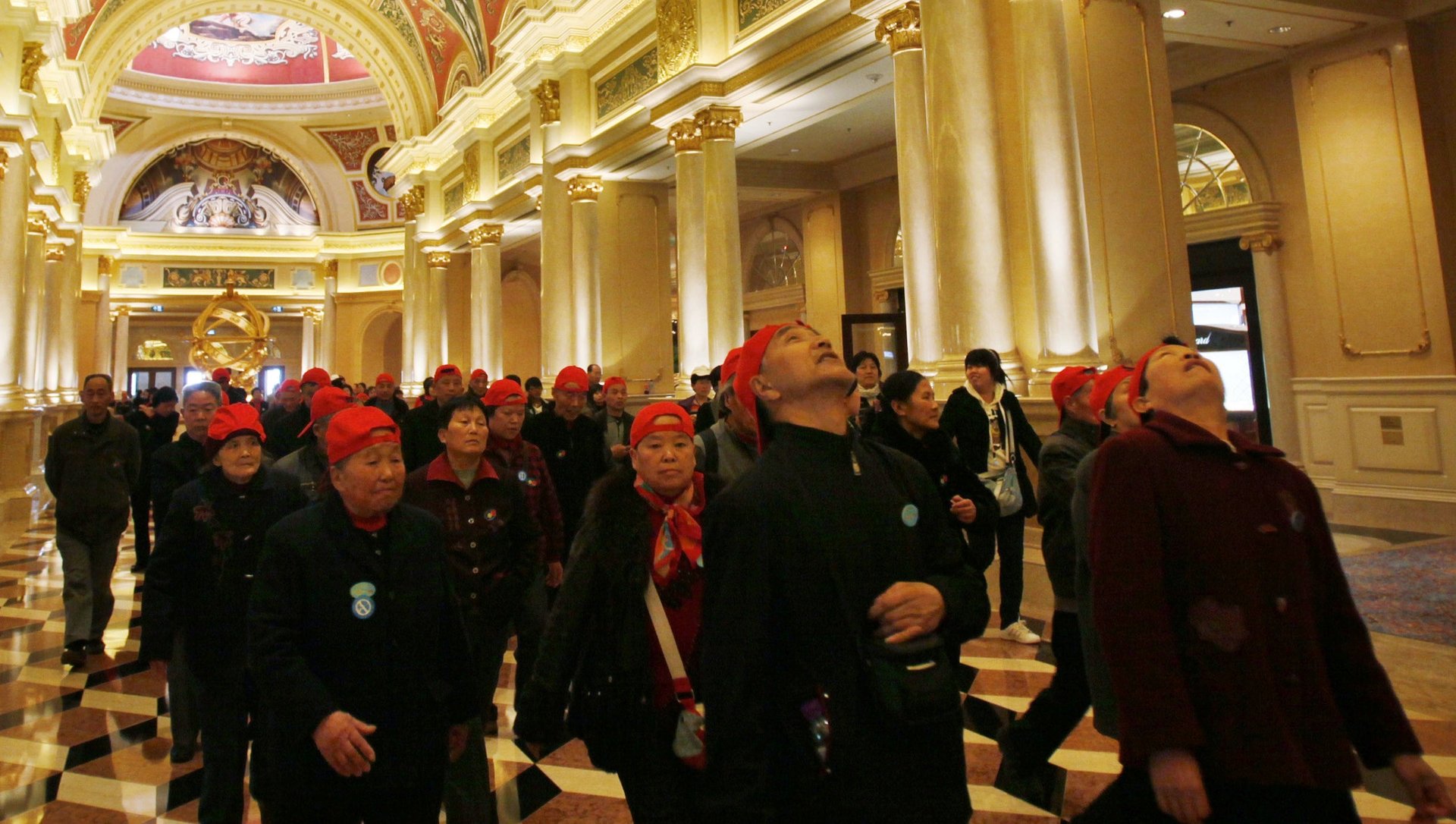Macau casinos look like a riskier bet amid US and Chinese crackdowns
Macau, the only part of China where gambling is legal, has the world’s biggest gaming market, and its business is booming.


Macau, the only part of China where gambling is legal, has the world’s biggest gaming market, and its business is booming.
But American-run casinos in the former Portuguese colony are becoming an increasingly risky investment. Law enforcers in China and the US are closing in on suspected bribery and money laundering in Macau, raising questions about whether it’s possible to grow a business there while conforming to US laws.
Late Friday night, billionaire Republican donor Sheldon Adelson’s Las Vegas Sands admitted in a filing (p. 96) to “likely violations” of America’s Foreign Corrupt Practices Act. The company did not directly tie the violations to its Macau business, but it said investigations by the SEC and Justice department ”may have emanated” from a lawsuit filed against the company by its former China chief Steve Jacobs.
Shares of LVS’ Hong Kong-listed Sands China unit fell as much as 2.7% this morning in Hong Kong trading.
Jacobs sued LVS in October 2010 for breach of contract, claiming in his lawsuit (PDF, paragraph 26, section D) that Adelson forced him to employ Macau legislator Leonel Alves as a legal adviser. The FCPA forbids US companies from paying money to foreign government officials.
Separately, the New York Times reported last August that LVS paid more than $70 million to companies connected to its mysterious Beijing representative Yang Saixin, and that “several million dollars” remained unaccounted for after these companies’ projects were shut down. Yang himself has denied any involvement in bribery. An LVS spokesman was unavailable for comment.
Meanwhile, US company Wynn Resorts has also fallen victim to Chinese government efforts to stem the illegal flow of cash outside China’s borders via Macau.
While Wynn itself is not under investigation and has not been accused of any wrongdoing related to money laundering, at least six agents of so-called “junket” operators that bring high-rolling VIP gamblers from China to Macau were arrested on Wynn’s premises last December. Macau junkets can help Chinese nationals, who are forbidden from taking more than $50,000 worth of renminbi outside the country each year, get around those restrictions by allowing them to swap gambling chips the gamers purchase with Chinese yuan for foreign currency.
The arrests may have frightened Wynn’s high rolling customers. The casino group net profit slumped 18% (pdf) in its most recent quarter after its VIP gaming revenues fell 7%.